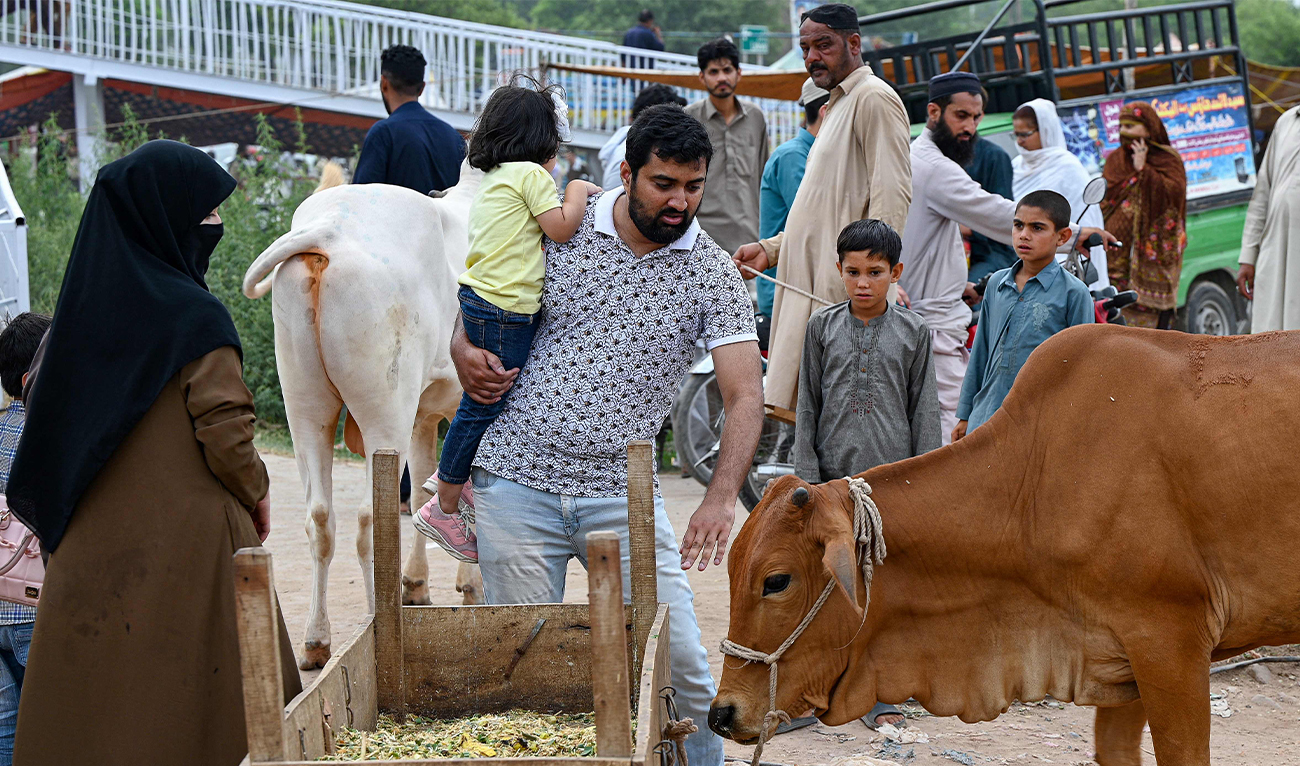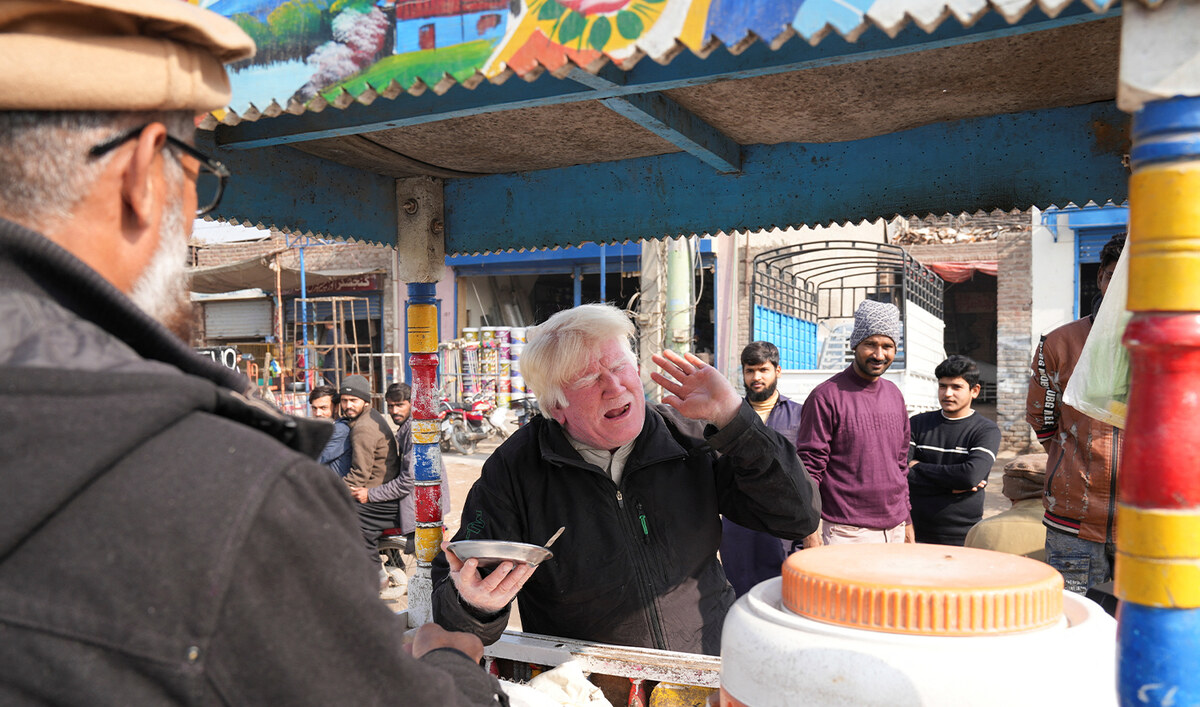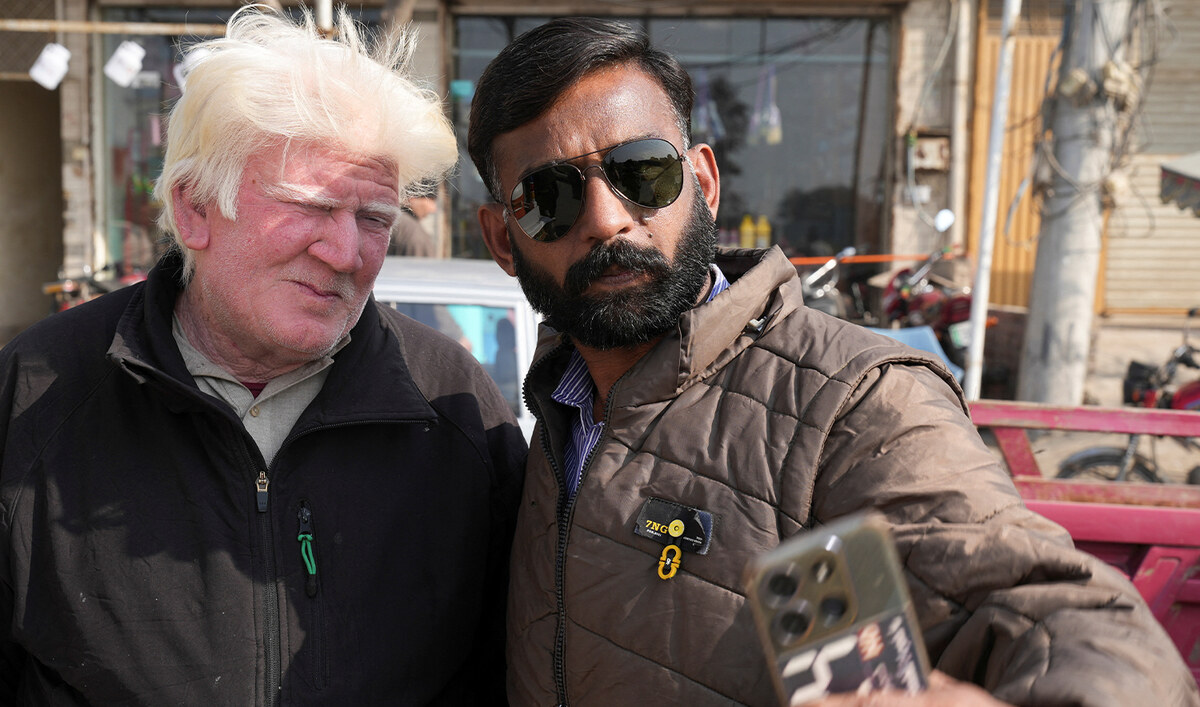ISLAMABAD: As Eid Al-Adha nears, the air in the Pakistani capital fills with joy, anticipation, but runaway inflation this year has made it difficult for many people in Islamabad to travel to their native towns to celebrate the second biggest Muslim festival in the warmth of family bonds.
In the past, Islamabad would typically wear a deserted look on Eids as most residents, hailing from various parts of the country, would leave for homes to celebrate the occasion.
But things have changed over the past couple of years, particularly this one, when inflation hit a record high of 37.97 percent in May, making the travel costly and "burdensome" for numerous families.
“Certainly, it was a difficult decision for me as my family will celebrate Eid in Islamabad away from relatives for the first time,” Muhammad Afzal, a government employee from the Layyah district, told Arab News on Tuesday.
“The rising costs of transport and other associated expenses has made it burdensome for me to undertake the journey to Layyah.”
Another reason, Afzal said, was the high prices of sacrificial animals.
“Every year, we buy a beautiful animal to offer a sacrifice, however, the steep increase in animal prices this year has made it unaffordable for me to buy one and my family, especially children, will feel it in front of their cousins, so I decided it was better to skip the trip to my native home this Eid.”

Customers inspect a bull at a livestock market ahead of the Muslim festival of Eid Al-Adha, in Islamabad, Pakistan, on June 25, 2023. (AFP)
Sheraz Khan, another government employee who hails from Hyderabad, said his heart yearned for the family festivities and reunions in his hometown, but the mounting expenses of traveling for his family of seven became an insurmountable hurdle for him.
“Sometimes, circumstances force us to adapt. On Eid Al-Fitr, I had to spend Rs60,000 only on travelling for the family of seven which has become too difficult to do now as monthly expenses have gone up due to inflation and we could not save up this much money,” Khan told Arab News.
Nonetheless, Khan found solace in technology and has been making video calls to relatives back home to bridge the physical gap and create moments of togetherness, even from a distance.
“Although I feel a tinge of sadness for not being able to partake in the cherished traditions of my hometown, but I can still connect with my family from a distance through video calls,” he told Arab News.
Rana Mubasher's family faced a similar predicament marked by inflation and rising costs of living in the Pakistani capital, which led them to reconsider their journey to their hometown of Sahiwal this year.
“The impact of inflation and the rising living costs made it difficult to manage the expenses associated with the trip back home,” said Mubasher, who works at a hotel in Islamabad.
For Shahid Malik, a call center employee belonging to Bahawalpur, the decision to stay in Islamabad was shrouded in both financial constraints and the need for personal stability.
“I am working in a call center and have made an excuse to my family that I could not get a leave but in reality, I am skipping a trip back home due to financial issues,” he told Arab News.
“I have to manage my expenses for the next whole month as living in Islamabad is expensive and with limited financial resources, I have to make difficult choices, and unfortunately, traveling back to Bahawalpur had to be put on hold this year.”
Imran Abbasi, a bus terminal manager in Islamabad, said the number of passengers this year has been half of the previous year’s tally.
“We usually increased number of buses on each route during Eid days, but this time even our regular buses are not operating at full capacity,” he told Arab News.
“We used to cater around 3,000 passengers daily during the Eid week, but this time the number is less than 1,500.”
Increased fares could be one of the reasons for less passengers, Abbasi added.






















